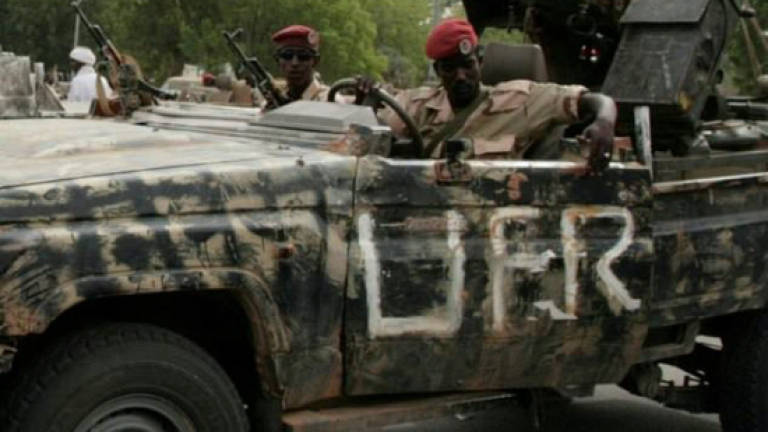Chad keeps wary eye on shifting rebel alliances

N'DJAMENA: Chad's government is keeping a wary eye on developments along its Libyan and Sudanese borders where rebel groups are trying to pull together into a political formation to challenge President Idriss Deby.
On the face of it, N'Djamena appears to be unconcerned, with the defence minister's office telling AFP troops are continuing to patrol the borders without any move to send in reinforcements.
But behind the scenes, they are worried.
"In order not to panic the population, the government is pretending. But everyone in Chad knows that the situation is not good," an official admitted, speaking on condition of anonymity.
Deby seized power in a 1990 military coup and has kept on top of a rebellion in the east, notably foiling a bid to overthrow him in February 2008 when rebel troops reached the outskirts of N'Djamena.
That failed attempt was led by the Union of Forces of Resistance (UFR), a rebel coalition which has since been forced to operate on the fringes of Chad's northern and eastern borders.
The UFR is led by Timane Erdimi, a nephew of the president who lives in Qatar, a country with which N'Djamena broke diplomatic relations last August for "an attempt to destabilise Chad" via its northern neighbour Libya.
Weaker now than it was in 2008, UFR is currently unable to be an effective fighting force, according to a source close to the group.
Forming a political force?
But it is factions allied to the UFR that are causing the most concern, sources say.
The UFR "seems to have regained strength and is threatening to resume hostilities," warned an article in the local press in Oct.
Speaking to AFP, Youssouf Hamid, the UFR's spokesman in exile who is based in Europe, said the group wanted "to gather the (armed) opposition into a political platform" in order to hold "internationally-monitored political talks with the Deby regime."
"The goal is to gather as wide a group as possible" to show that "it is Deby who is forcing people to wage war," he said.
But there are other UFR-allied rebel groups based in southern Libya and Darfur, in neighbouring western Sudan, who are also trying to form alliances, AFP has learned.
Chad, a former French colony and one of the world's poorest nations, has vast desert borders, including with Libya and Sudan, which are notoriously difficult to police and militants can often roam between countries undetected.
Islamist alliances
Although it is unclear how many fighters the UFR has, there is an alphabet soup of militias operating in the border regions of war-torn Libya, including UFDD, FACT and FSR, who have taken advantage of the vacuum created by the downfall of Libya's long-time leader Moamer Kadhafi in 2011.
And there is concern that some of these groups may have become involved in the Libyan conflict through alliances with Islamist factions, although not all Chadian rebel groups accept this.
"There has never been a change of regime without weapons" in Chad, said Marielle Debos, an associate professor in political science and specialist on the country.
This underlines the persistent weakness of the unarmed civilian opposition, she added.
But analysts believe the odds of a renewed rebellion in the "immediate future" similar in scale to 2008 appear to be slim for a number of reasons.
Firstly, the various rebel groups are "fragmented" and the Chadian army is better equipped, explains researcher Jerome Tubiana, a specialist in Chad and Sudan.
And these days, Chad and Sudan "maintain good relations", unlike in 2008 when Khartoum supported rebel groups on its territory, he said. — AFP